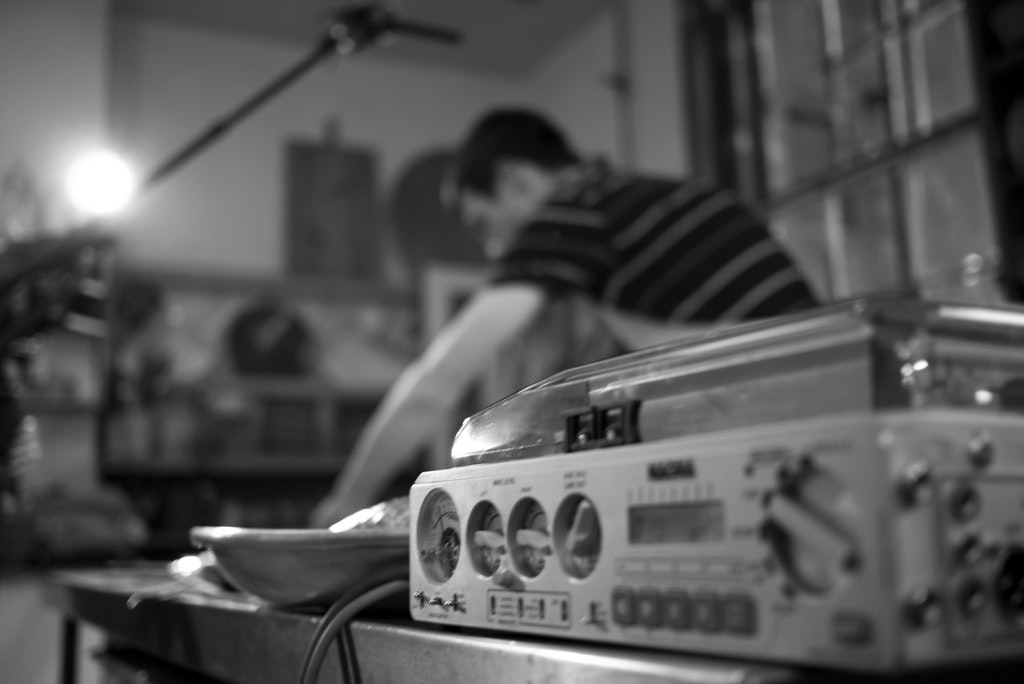Matthew Herbert - One Pig
Clash Magazine
Matthew Herbert presents 'One Pig'
Matthew Herbert - One Pig
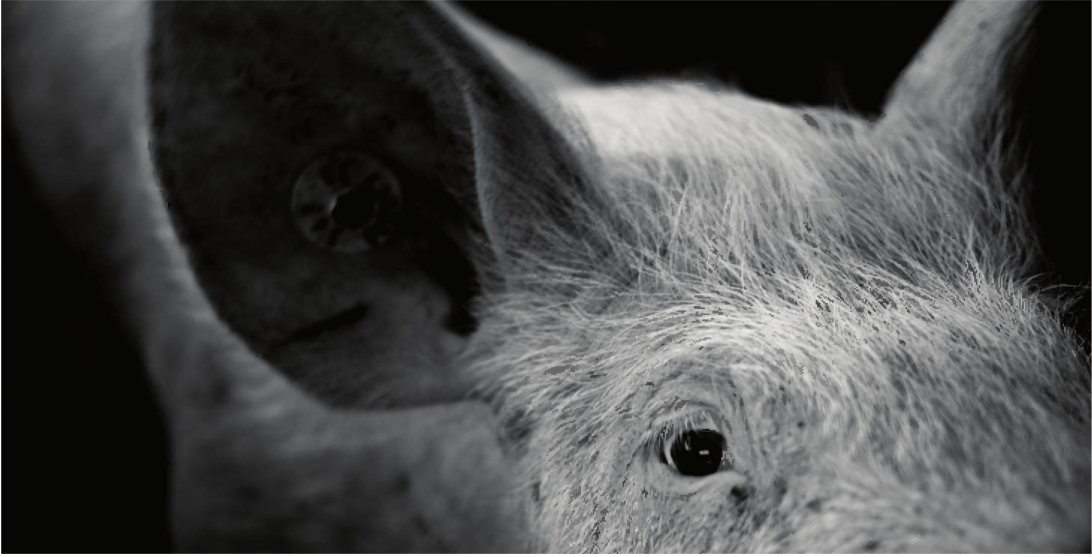
"If music be the food of concern, read on. Shakespeare didn’t say this, but Matthew Herbert effectively is."
Words: Matthew Bennett
Feature on Clash lives HERE
Matthew Herbert is so disgruntled with the politics, class and degradation of Britain’s food that he’s made a protest album out of a commercially reared pig. A world’s first. But how? And is the concept of this album greater than the music?
“I think at this precise moment the idea of turning a pig into music is absolutely more important than the music,” he concurs from the counter of his local fish restaurant in Whitstable. “Without sounding like I’m arrogant or classing myself as some pioneer, it’s the only record I know made out of a pig or any farm animal, from start to finish. It’s not like every ninety-year-old knows what dubstep is. But a four-year-old kid knows what a pig is and so does a ninety-year-old grandma, so everyone’s got the same frame of reference, which is a pig.”
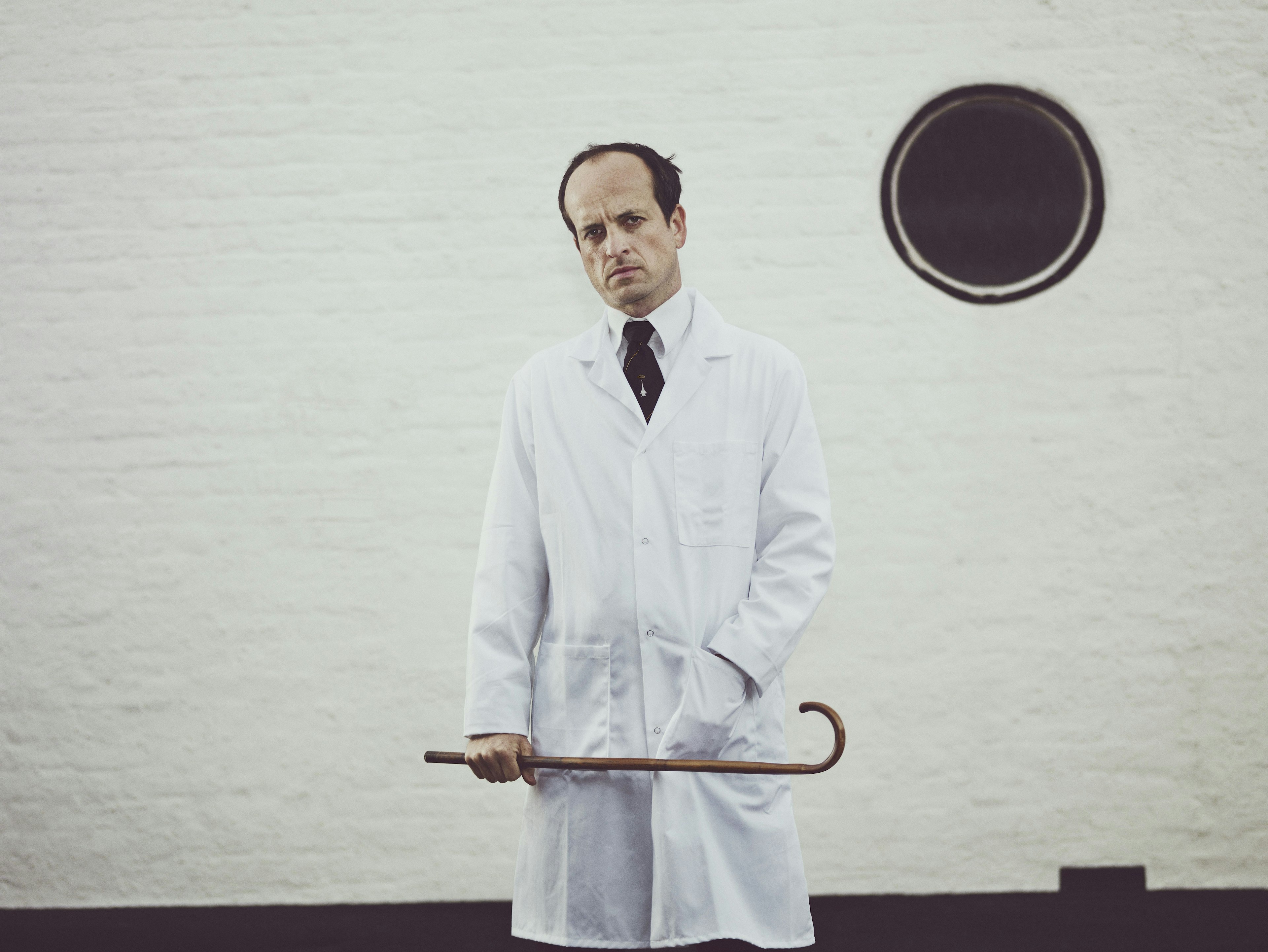
Herbert has become obsessed with our food chain. This latest communiqué called ‘One Pig’ lifts the lid on the lack of transparency in what we eat, where it comes from, what it does to our bodies and how the government has handed private companies absolute power to dictate the national diet. Fittingly to the backdrop of the youth riots in August, he’s exploring how the edges of our society are fraying. It seems we’re hurtling off into an over-convenient, genetically modified, and tampered future, where elders and youngsters rarely eat locally sourced, home-cooked food with dialogue about their lives together; a binding system that’s worked for many a millennia.
As one of the most experimental men in dance music Herbert’s first live performance was with a microphone and a packet of crisps. Since then he’s increasingly become politicised and savours the challenge of changing people’s lives with found sounds that he electrifies with outrage. In short he’s addicted to the hard route in music. “You just realise how insignificant we are and how lucky we are to have the privileges we do,” he enthuses, “taking yourself out of the studio and getting yourself away from the familiarity; you’re constantly reminded how clumsy you are. Like finding yourself in the pissing rain, knee deep in shit, trying to get a bass line out of a pig.”
Herbert sees politics and food as dangerously linked. He bombards me with facts over two hours of dialogue. For example, by 2050 half of Britain’s male population will be obese. Or, in some areas children’s life expectancy is now lower than their parents. He continues: “This new government, they couldn’t give a shit. They invited McDonald’s to sit on the panel to come up with health advice for the nation! New Labour allowed McDonald’s to open their biggest franchise inside the Olympic village. It hopes to sell an additional half million Big Macs in the Olympic two-week period.”
And so to the swine. Recording all the key stages of a pig from its birth to its death at twenty-four weeks, Herbert’s made an experimental album that operates between the polarities of stark, unprocessed grunts all the way to primal, melancholic techno. Pigs are used in many products humans are obsessed with, from bullets, film, beer and onto make-up and cigarettes. One of the producer’s main aims was that every single part of the animal was used. No waste. So he assembled a team of specialists to butcher, process, cook, then eat the animal over a banquet that maintained every possible respect for the animal’s life and historical use. All the while Herbert captured every noise he could.
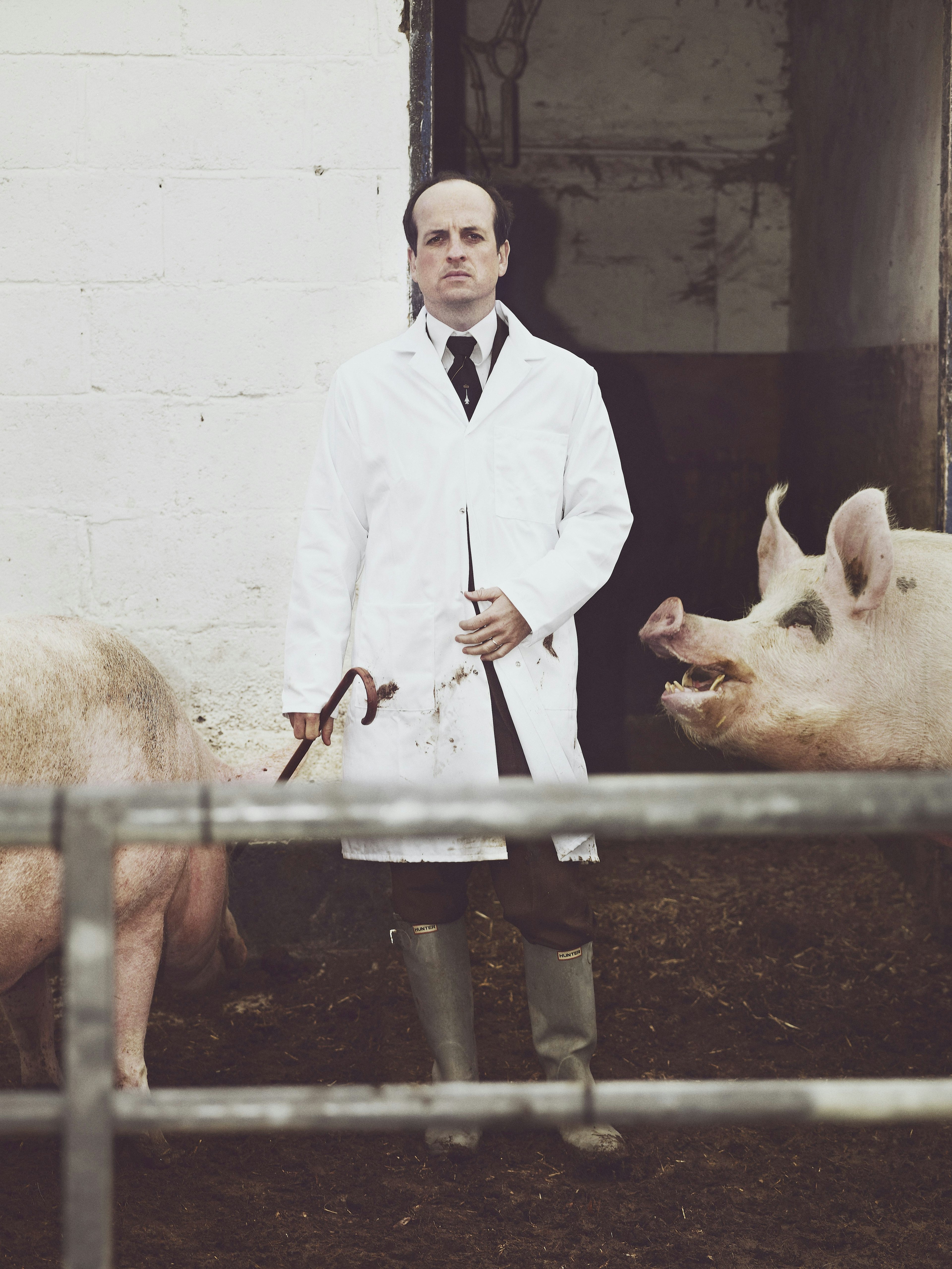
“We made the fat into candles, we had the trotters stuffed by a taxidermist and that was made into candelabra, we made pig’s blood paint, different types of paint which I still have actually, we made like a pig’s blood dye, so with that we made tablecloth and we made some bunting which we hung up when we ate it. We used some of the lard to make buns, like bread buns, we made ice cream, jelly. We made a pig’s blood instrument, a drum. We’ve still got the bones, which we use as percussion instruments for the live show.”
Controversially, and as Herbert quickly discovered, we aren’t actually allowed to watch our own food being killed. And as Felicity Lawrence outlines in her hard-hitting book Not On The Label we aren’t really allowed to know what’s truly added to our food either. Herbert’s states this crux his biggest regret on the project: “But the fact that I wasn’t allowed to be at the death is brilliantly political because it explains perfectly that you can have anything you want to eat but you can’t see how it’s made or where it comes from.”
Unsurprisingly there are some dark moments on ‘One Pig’. You hear a sibling fracture its jaw after being hurled across the pen during the birth process. Later on the album a primal wailing confirms that animal could no longer feed and faces its own death. One percussive sound is the air being beaten out of the lungs during the butchery, the ‘jun jun jun’ noise becoming drums for Matthew’s music. Bones are sawed. Farmers discuss the price of units. We’re exposed to thuds of the decapitated head on a chopping board whilst the deep buzz of the fridge in the background comprises a bassline.
And we also hear a tragic voice from beyond the grave. Herbert had commissioned instrument maker Henry Dagg to create a device with which he could generate sound with the pig’s blood. “I said to Henry I either want to make it pretty hideous or really beautiful because I don’t want a ‘nothing’ sound,” explains our protagonist. “He went for really hideous.” Herbert quickly found himself the owner of a series of pressurised glass tubes filled with blood that pushes air through tuned reeds. It’s a terrifying timbre that resembles a mutated human voice - perhaps what a man may sound like but genetically modified, bred in the dark, pumped full of antibiotics and only fed the ground-up body parts of fellow humans. Like I said, it’s dark at points.
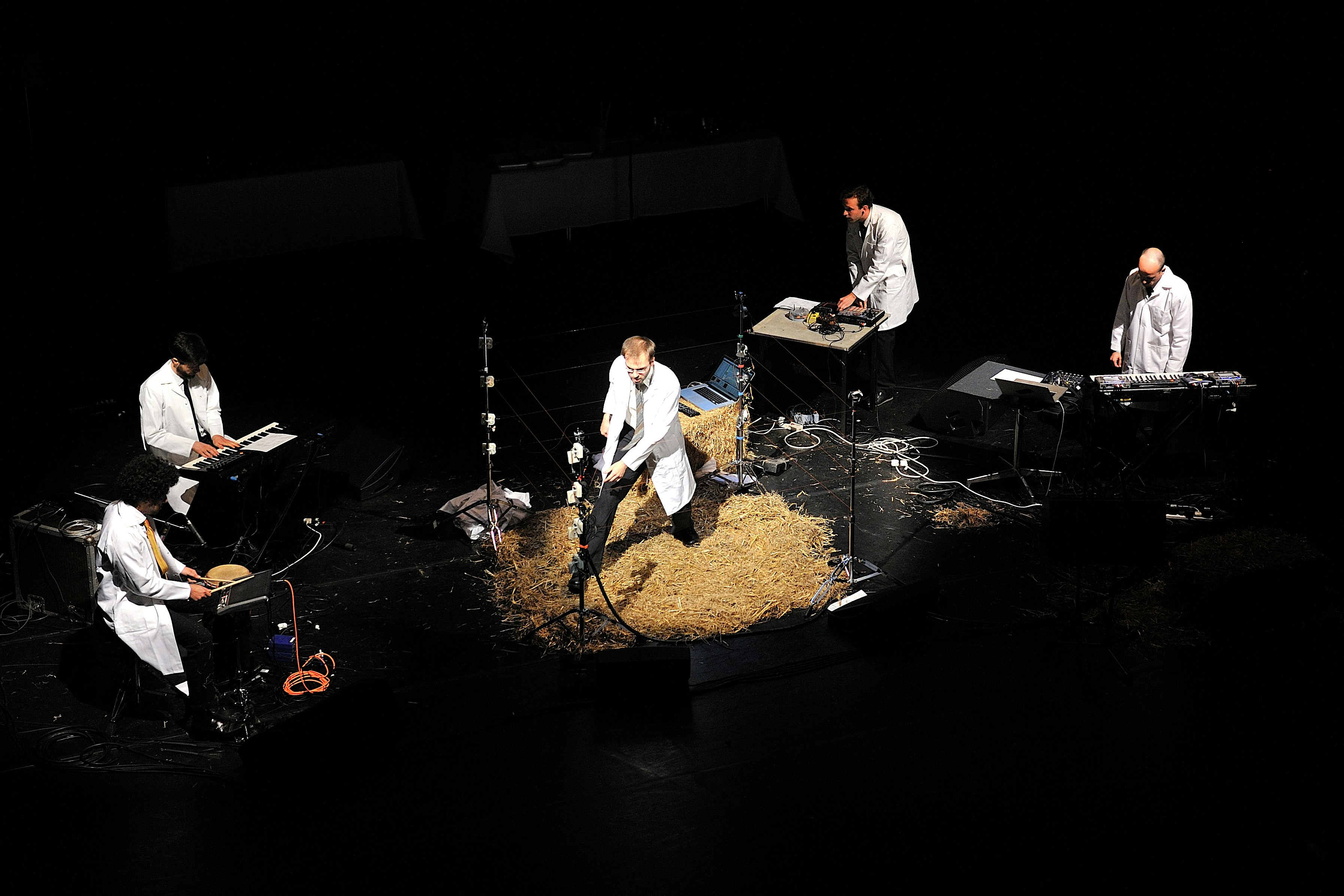
But much like real life, there’s also inherent comedy. On the last track our musician plucks a guitar in the sty and sings a eulogy of respect to the simple life of his butchered pig. “There’s a brilliant part,” relishes the producer. “I’d very earnestly finished singing my song, and the minute I finish the last line the pig starts taking a piss, about two foot away from me. You can just hear like a big stream of piss and it’s like, ‘That’s what I think of you and your record and probably your species as well.’”
The pig also had something of revenge. The banquet was attended by various chefs, and musicians such as Micachu, Sam Best and Tom Skinner who plays drums on the album; everything was eaten and the sounds recorded. The following day the sound technician was appalled to find his laptop with all the recordings had been stolen! Revenge from beyond the abattoir.
So, let’s get down to the nitty-gritty. How close did Herbert come to smashing out some next level contemporary bass style to grab the world’s attention? How much did he consider the immortality of sounds compared to styles of modern music? “To be brutally honest I’d say that temptation is there almost every day you go into the studio. I think the minute you try and shape it, the minute you put a pig on a dancefloor… it undercuts any kind of moral point. I’m not sure if I want to be the Jamie Oliver of the DJ world! The difficulty is that clubs and dance music is about the instant and it’s about the moment. And the problems that I see with the world are long-term.”
Next up, which were his favourite found sounds to work with? “A few of them actually are almost none of the pig,” he confesses. “One of my favourites was the tractor - that actually forms the bass line of ‘December’. That track then becomes a metaphor I guess for the relationship with farming. I really like the track ‘October’ because all the chords are made from a cow in the next-door stables. That cow’s now been killed too, so it’s like giving a voice to the other animals.”
‘One Pig’ is at points is very melancholic. But was this always his plan? “I’d say it was. Mainly because you have information that the pig doesn’t - from the minute it was born you knew roughly when it was going to die, you knew something it didn’t. That melancholy was always there, always implicit for me.”
There was also a bizarre political interlude before any music had even been made. PETA, the animal rights organisation, made a public statement condemning Herbert’s ‘entertainment’ plans. They had missed the whole point. But who thought making an album from a pig wasn’t going to anger and confuse people? Even though the pig led a healthy and happy life the question remains (like a dead farmyard animal in the room): how on Earth does this musician expect even lovers of the avant-garde to repeatedly engage with forty-three minutes of pig grunts, rain noises and muttering farmers?
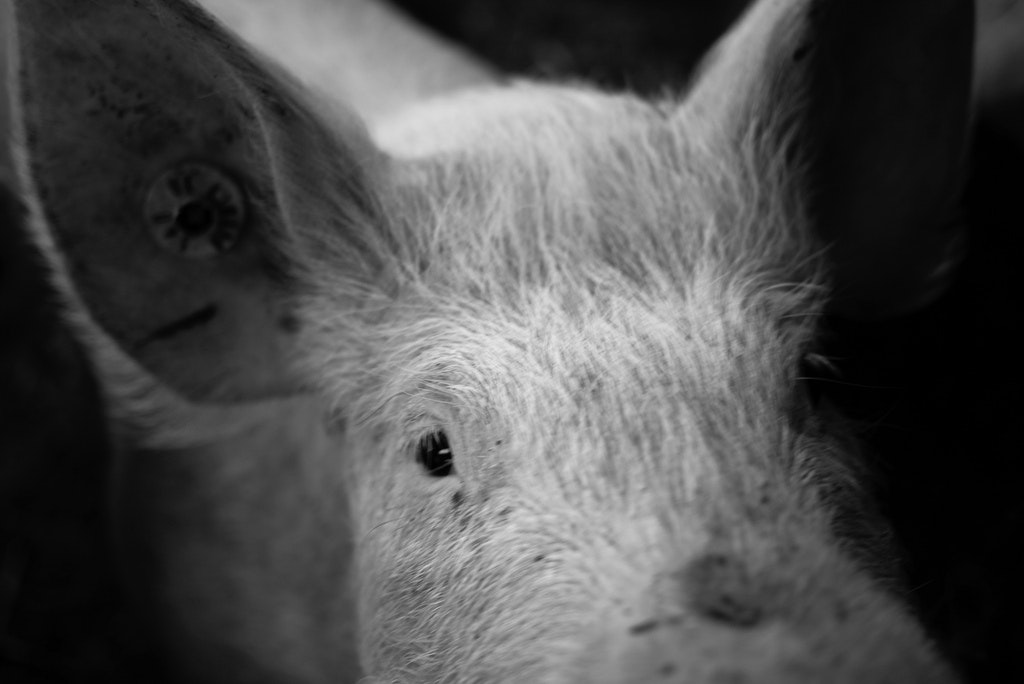
“There’s no right response to it. I think all you can do is amplify. My job I think is to amplify the world, and I want to listen to that. I want to hear what a pig sounds like growing up and dying, and if no-one else wants to it then I’ll sell no records!” The thirty-nine-year-old illustrates his point further: “If I made a record out of sounds from Paris, and someone in your office on a Monday morning was not wanting to engage, but Tuesday they discover that one of their friends has died in Paris, then on the Wednesday they’ll have a completely different relationship to that record than they would have had on the Monday.”
Such is the lack of politics in modern music, and especially electronic music, that Herbert’s albums are often the most politically orientated that Clash deals with. His Radio Boy album ‘The Mechanics Of Destruction’ saw him destroy globalised products onstage, transforming Happy Meals, Gap bags and televisions into filthy dance music in real time. Five minutes of destruction equals five minutes of angry visceral techno performance. “I did a track called ‘Disney’ live,” he smiles, “until someone came up to me and said, ‘I work for Disney and I’ve just quit my job’. For me that was the best kind of response, that’s what you’d hope in your dreams.”
To this backdrop, therefore, I ask him how does he hope his ‘One Pig’ album will be received, and how far does he see its reverberations? He angrily references his last album immediately: “I think what’s annoying for me is that on ‘There’s Me And There’s You’ I sampled the sounds of Palestinian and international protestors being shot by Israeli defence force soldiers on the border, in Ramallah, against the wall and tanks demolishing homes. And that barely got a blink of an eye, and yet the pig has got a lot more controversy about it: Facebook campaigns, people in touch. So my experience is always that you can never predict those kind of responses.”
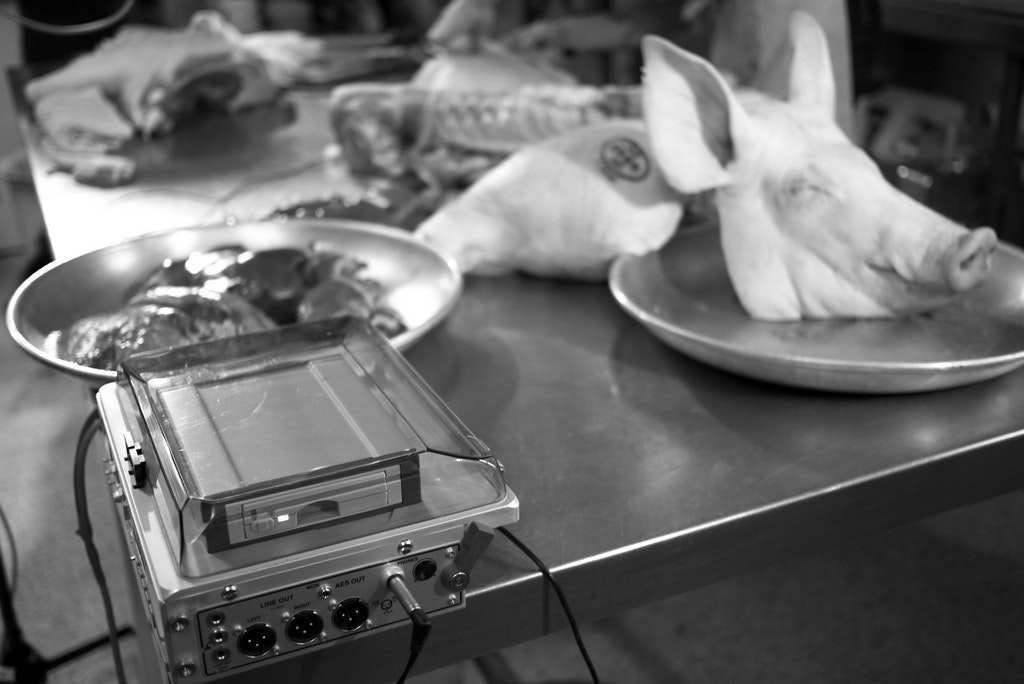
So skipping the reverberations then, if Herbert were the boss, what key things would he change about our food industry? “I would close all supermarkets. I would subsidise farmers that are more organic and place an emphasis on self-sufficiency for the country. The third thing is, I would make cooking a compulsory part of every school child’s education. And as a consequence hopefully we’d have at least an hour for lunch every day. I think there’s a politics of pleasure with food that’s really important. If we took more pleasure in it, if we took more time, then we’d be less inclined to put any old shit in our bodies.”
It’s a fact that poorer member of British spend MORE money on food. This inherently makes ‘One Pig’ concerned with class as well as diet and politics, as Herbert observes: “They tend to be less educated, working harder, so they have less time to cook. They might watch more TV so be more prone to marketing and advertising. They’ll also be more price conscious and so will be more directly targeted by the supermarkets for their value-added price deals. If you’re at a butcher you can buy three sausages, but if you’re at a supermarket you have to buy sausages in a pack of six. All these decisions are taken out of your hands.”
Herbert’s disgruntlement extends to the top of our society. The government has given the private supermarkets carte blanche to serve us what food they think we should eat, how it’s grown, how the animals are kept and what chemicals go into ruining our land. In his own words: “We’re in a society that values money almost above everything else and everything is valued according to its worth. I would limit the power of supermarkets. I would completely restructure the food system to prioritise the health and welfare of the land and the animals on it rather than on profit. And we are the government so we seem responsible for our own demise in that respect.”
Here we’ve run out of ground for all his ideas and gripes. But there’s a final question after the birth, life then death of his pig; after the banquet, the creation of new instruments and new sounds, the cries from PETA and so on: what was the greatest thing Matthew Herbert learnt making ‘One Pig’? A respectful pause ensues before he pulls the curtains down: “That I’m NO better than the pig. And I went in thinking that my achievements were better or above it somehow, but actually I just came away feeling I was its equal. At best.”
